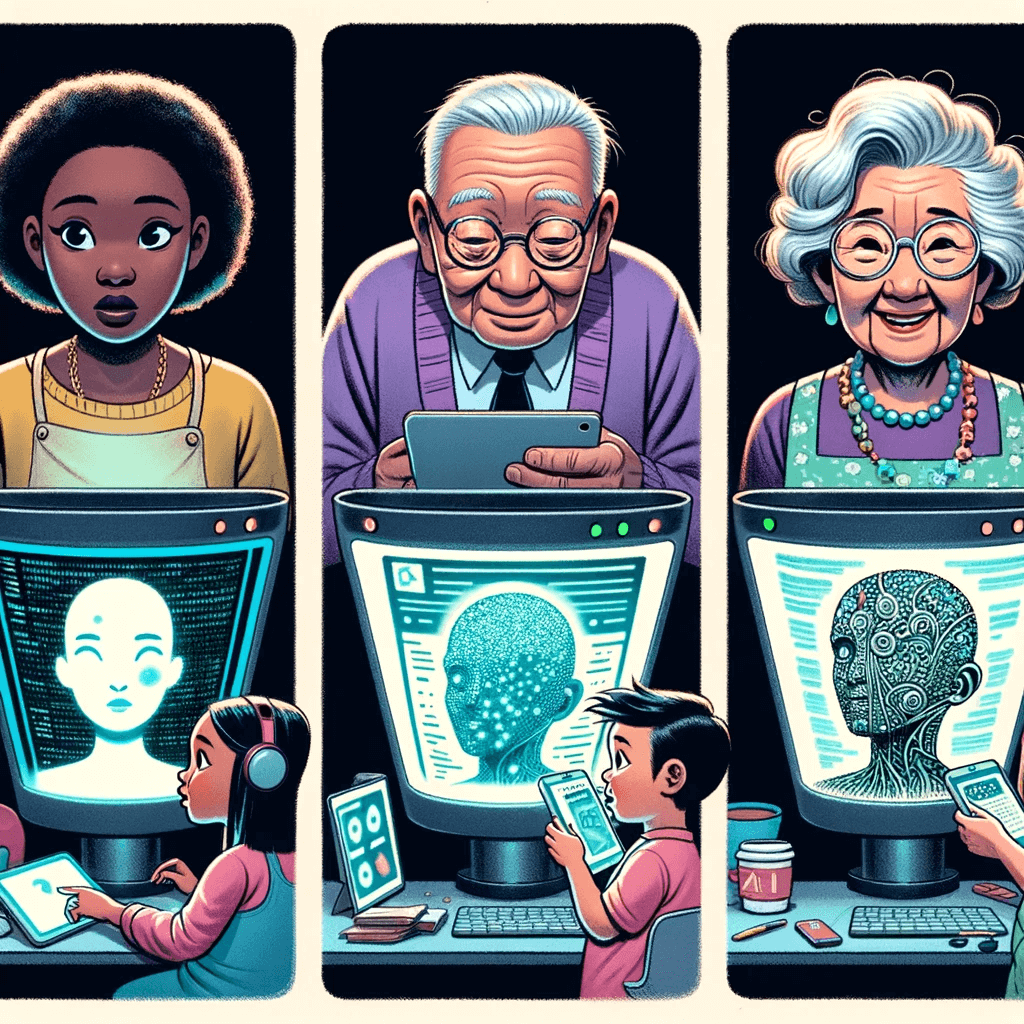
The Learning Technology Center has been actively exploring and integrating generative AI into campus educational practices. This exploration has manifested through a series of workshops, panel discussions, and informational sessions, reflecting a shift in attitude from initial apprehension to curiosity and tentative adoption in teaching methodologies.
Lessons Learned
- Communication, Transparency, and Setting Expectations Comprise A Responsible Use Framework: Thoughtful integration of generative AI in the classroom necessitates that instructors clearly outline their expectations, regularly address generative AI use with students, and acknowledge when and how they are using it. Use of generative AI is not appropriate for every classroom, and as such, providing students with an explanation of AI’s limitations will help dissuade improper use.
- Privacy and Security Remain Critical Consideration Areas: As companies continue to modify, expand, and monetize platforms, how they will use personal data remains unclear. Users should be diligent in what information they share with any generative AI platform and be cognizant of what information is kept or stored with any platform.
- Generative AI Has Capabilities to Augment, Not Replace, Education: In just over a year of generative AI use, the best examples of AI’s transformative power in education have been in helping students and instructors achieve more, such as, increasing student access to personalized feedback and decreasing instructor workload in generating rubrics, course materials, or assignment ideas. Generative AI is not a replacement for teaching and learning, but a tool that can help all succeed.
- Humanity in Technology is Vital: As Dr. McGovern stated in our panel discussion, “Human beings are the final arbiters of truth.” Generative AI is not a replacement for human creativity, creation, or critical thinking. In a world where deep fakes and disinformation will need to be actively countered, it is imperative that students, instructors, and all campus constituents think critically about what content is considered original and credible.
Summary of Key Events
- Introduction to Artificial Generative Intelligence Workshop: These sessions provided an overview of AI in higher education, discussing its opportunities, limitations, and ethical considerations.
- Awareness and Detection of AI Workshop: This workshop focused on equipping educators with skills to differentiate between student-generated and AI-generated content and discussed the ethical use of generative AI in coursework.
- Incorporating AI into Assessments Workshop: This workshop demonstrated the use of ChatGPT in streamlining assessment processes, reducing instructor workload, and enhancing learning objectives.
- Use Cases and Opportunities for AI Workshop: This workshop highlighted the diverse applications of generative AI in higher education and discussed strategies for effective implementation.
- Ethics and Limitations of AI Workshop: This session delved into the ethical concerns surrounding generative AI, discussing the importance of responsible AI literacy, verification of authentic work, and the vital role humanity still plays in technology.
- Panel Discussion on Generative AI in Academia: This event brought together various campus community members to discuss AI’s burgeoning role in academia, covering topics like academic integrity, educational reshaping, and institutional responsibility.
Other Resources
- Introduction to Generative AI Knowledge Base (KB) Article – This KB gives a brief overview of what generative AI is and how it can be used with respect to privacy and security concerns. Additionally, it provides a repository of sources and links to more information.
- Generative AI Syllabus Policy Language KB – This article gives examples of syllabus policy language instructors can use to set expectations for generative AI use in the classroom. The example language gives instructors flexibility to determine what is best for their classroom. As the Faculty Senate passed a resolution that an AI policy must be included in syllabi, this document is invaluable in assisting instructors getting started with this process.
Looking Ahead
Winterim Programming – In the Generative AI Series, workshops will focus on preparing instructors for AI use in the classroom, from building a syllabus policy, to integrating AI into student assignments, to finding ways to streamline classroom prep. All generative AI workshops are interconnected, but not serial, so register for as many as interest you!
Interested in finding out how generative AI can be used? Request a one-on-one consultation with an LTC expert! Other questions or concerns can be emailed to us.
